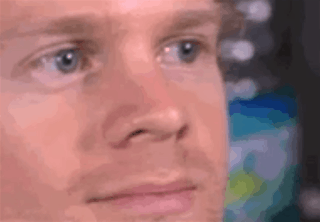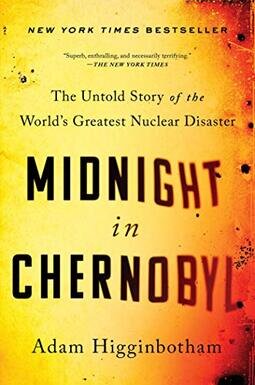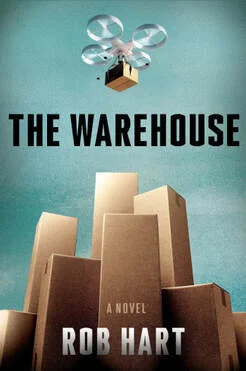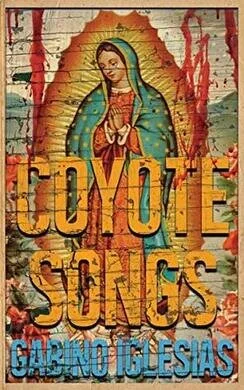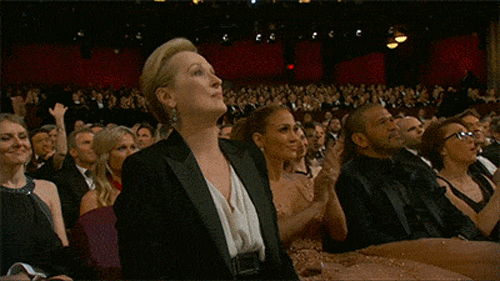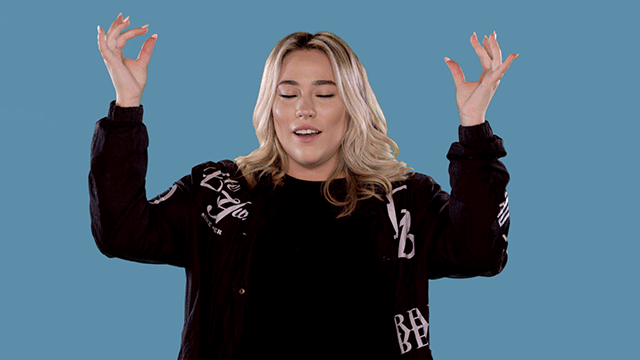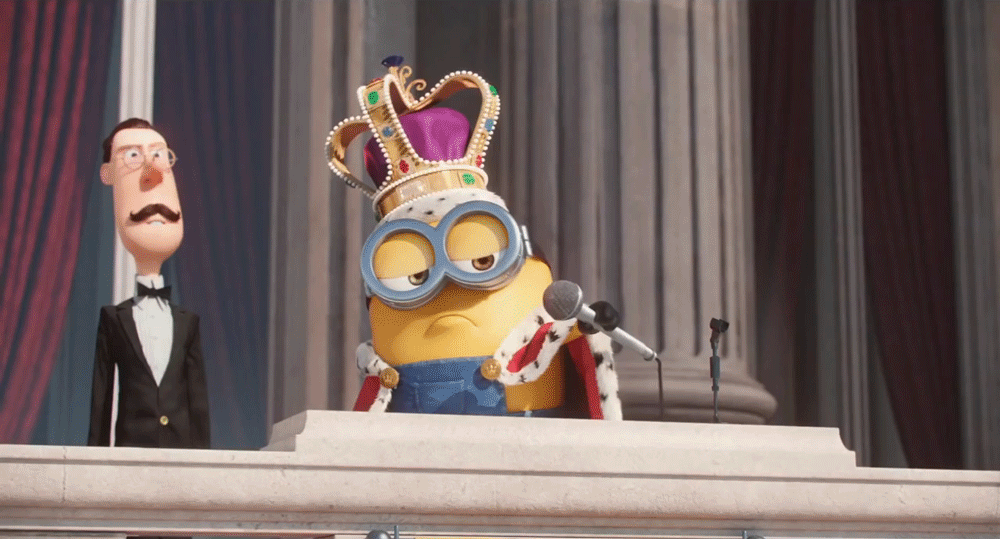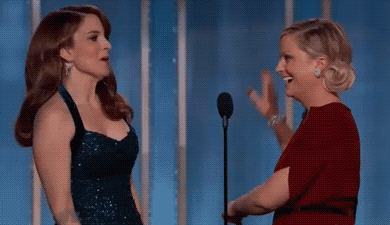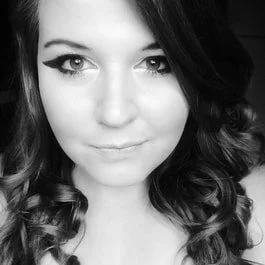Michelle Webber: The Role of Publicity & Literary Citizenship
So you’ve written your manuscript. It’s been picked up by a press. You’ve gone through the editorial process. And now the book is heading into the “publicity” phase of the publishing process. But what the hell is publicity? Can you throw books at people? Should you throw books at people? Should you be tweeting? What's a galley?
For these questions we turn to Michelle Webber. She's a freelance editor and marketing copywriter, science-fiction writer, and gamer whose marketing and editorial work at presses like Mascot Books and Stillhouse Press prove why she's a force of nature with an unparalleled passion for the literary community and helping authors succeed.
Let’s get right down to business: Sweet, salty, or a combination of both?
Ha! I like both. But if you held a gun to my head and told me to pick one, it’s salty. It’s all the best things in life. Bread. Crackers. Goldfish! Oh my God, Goldfish! I could proselytize for 30 minutes about the pros and cons of Goldfish versus Cheez-Its.
Please make that your first blog post once your website is up and running. How is that going by the way?
Good. It’s been a process but I’m excited to roll it out.
Now that you’ve jumped into the freelancing pool, what kind of work are you most interested in doing?
Marketing and copywriting. I’d love to do some PR [publicity] as well. But I’d like to do it for tradition presses—especially small ones—rather than hybrid.
Okay, hold up. Define hybrid for me.
Hybrid is when the author absorbs the cost of the production of the book. But in return they get traditional distribution. So Mascot, for instance, works with Ingram Spark, Baker & Taylor, Amazon, B&N, everybody—just like the big presses. So the cool thing is that each book we work on is customized to the author’s goals. Distribution, publicity, marketing, all that stuff varies from book to book.
For those who might just be getting into publishing, what is "publicity"? I’m always curious to hear how others define and view this part of publishing.
To me, "publicity," or book promotion, consists of three things:
Marketing
Publicity
Sales—kind of. I put it in there.
What’s the difference between marketing and PR? I feel this is something that often gets mixed up.
Publicists handle pitching the book to only media outlets (e.g. national and regional newspapers, broadcast, podcasts, blogs, trades, etc.). Marketers work to get the book to the masses.
How many campaigns do you typically run at Mascot?
We did marketing and publicity for 465 books last year.
Holy crap!
Yeah it’s crazy—and you wonder why I was running around like a chicken with my head cut off.
Oh no, I know. If you’re working in publicity or marketing you’re never hanging around twiddling your thumbs. You’re always making moves. How long were you with Mascot?
Two years. It feels like it was longer though because my responsibilities escalated so quickly and I had gotten so much experience. I came in as a production editor. But then after 6 months I was promoted and the next thing I knew, I was a one-woman marketing machine for three months until they could hire members for what what is now the media and marketing team/department!
Once I got everyone up to speed I started putting practices in place to ensure they can handle the work load. Before I left I had been building resources for the team as well. So while it had been a whirlwind, I’d continued to learn and grow just like I had when I was working communications with Stillhouse.
Publishing is definitely one of those industries where flexibility is a must. You’ve just got to throw yourself into the deep end.
Girl, exactly! And I’ve gotten to work with so many different books and people. Some have been okay, but overall most of them have been amazing, and I’m just like:
Before I left Mascot I was working on a book called Hart & Seoul by Kristin Burnham that got rejected wholesale by agents, so she went with this hybrid model and it's been getting a lot of traction. On NetGalley alone I got anywhere from 20–40 requests a day and bunch of 4/5 star reviews.
Speaking of NetGalley and reading. What are you reading right now?
Many things.
How many things?
Well, I picked my novel project back up.
Sidebar! For those who're interested, here's a rundown of Michelle's current work in progress, The Children of Atom:
After the nuclear Red War leaves large parts of the United States and Russia uninhabitable, the U.N. turns to the old world's most irradiated ruin to pursue cleanup solutions. Kerrigan has been a prisoner of the Chernobyl Penal Colony for ten years, separated from his niece and nephew, who face challenges of their own as refugees in Scotland. When one of Chernobyl's decommissioned reactors suddenly begins to melt down, he and his partner, Lena, must find two missing inmates who hold the key to saving the colony–or risk more than just another nuclear disaster.
How’s that going?
Really well, actually?
Oh, stop sounding so surprised.
Well, I’ve started this thing from so many different places, so many damn times and it’s just never felt right—until now. Now, I think I'm entering the novel in the place that makes the most sense. And I think what I’m going to do differently as I go forward is to write one of my main characters’ narratives all in one go, rather than breaking off into the other narrative strands and weaving them all together from the get go. Which leads me back to what I’m currently reading. I’ve been reading a chapter from a source text and then jump into writing the novel. So right now I’m reading Voices of Chernobyl and it’s been really good for sensory details and capturing some of the colloquialisms. I also just purchased Midnight in Chernobyl.
It’s a comprehensive history of the Chernobyl disaster and its aftermath. Definitely looking forward to reading this. And then for pleasure I’m reading Coyote Songs by Gabino Iglesias. It’s a mosaic novel—a novel in stories. It’s gritty as f**ck, and it’s bilingual and beautiful and it’s just awesome—he’s incredible. I met him while I was hanging out with Dave and the Barrelhouse crew during Conversations and Connections.
How was Conversations and Connections?
Oh my god, Amanda, it was amazing. I had joked with Dave that I was going to bring a special box of wine for just him and the editors back in December. He didn’t f**king believe me and rolled up with it, and he was like, “You’re kidding!” And I was like, “This joke was six months in the making no way was I going to miss this chance!”
I can’t believe he doubted you!
Dave's so sweet! I love him. They’re all awesome!
So what’s a book that’s coming out in 2019 that you’re excited for?
The Warehouse by Rob Hart! One of my coworkers went to BookExpo right now and I told her one of the most important missions she has is to get me a galley!
Galleys are magical things. What kind of outlets do you tend to target once you get galleys in?
There’s a lot of publishers and marketers that won’t pitch an outlet if it has less than a certain number of follows. Personally, I don’t play that way because I think that it’s not about the size of the following, but how dedicated that outlet’s audience is. Of course I go after the big guys who have big platforms, but I also go after the little guys. And really great things have come from those “little” guys.
For instance, I worked with this reviewer who requested a NetGalley of Hart & Seoul. She read it, loved it, and then reached back out to ask if she could interview Kristen—and this girl was only 17! And I was like hell yeah you can! You know me, I told the girl how cool it was that she was only in high school and already doing that kind of stuff.
This is one of the big reasons why I do publicity and marketing. A lot of people have the tendency to view publicity and marketing as artless. Like it’s the “bad” side of publishing. They say if you’re an artist you shouldn’t go into marketing because it’s not creative and it doesn’t give you the same “warm fuzzies” about the work.
That’s all bullshit. The best thing about publicity and marketing that so many people miss is that it’s not all about sales, it’s about sales opportunity. It’s a chance to put a book into the hands of people that need it, building buzz, and drawing attention to the title.
So many authors think you need to be a salesman to be an effective marketer and that’s just not true. You just have to know how to talk about your book and recognize a good opportunity to talk about it when the time comes, you know?
What is the author’s role at this point of the process then?
It depends. If you’re an author who only plans to write one book and then go back to their mountain, they don’t need to give a crap about marketing and publicity. They don’t have know anybody. They don’t even have to really say anything. On the other hand, an author who wants to publish more than one book and sell the first book has to be invested and involved.
What are some questions authors should be asking publicists/marketers? What are some best practices?
Questions they should be asking of their publisher or publicist (whomever they end up working with) are:
"Are we doing galleys?" If so, ask when galleys are coming in. If they say anything shorter than six months push for a longer lead time. Do yourself a favor because the trades (Publishers Weekly, Kirkus, ALA Booklist, Library Journal, and Shelf Awareness) need at least four months before publication to consider it for review, in addition to other big outlets.
"Can I get some copies of galleys?" That way you’ll have copies on hand to give out as well.
Tell them what you're planning to do to promote the book. There isn’t a publicist in the world who doesn’t need more help. My dream is when my author comes to me saying, “Hey, I’ve reached out to these people. Here’s their contact info. I’ll let you know if they get back to me.” Most authors are not natural marketers and that’s okay. But, I can’t say this enough, nobody can sell your book like you. You know it backwards and forwards. You know it like your parents know you. Your parents knew you before you were even f**king born.
Social media is another big part of this. I get authors all the time telling me they don’t want to do social media because they don’t want to be “that guy.” My take is that social media is meant to be conversational and within that there are ways to promote your book and, more importantly, connect with people. You should be engaging with people. “Buy my book. Buy my book. Buy my book,” is neither effective book marketing nor what social media should be used for.
Networking with other authors is also essential and it’s something so many authors don’t do. Writing is a solitary activity, but publishing is not. Publishing is collaborative. Publishing is people.
The reason why networking with other authors is so great is because they’ll invite you to things—if you treat them well. Essentially if they have opportunities, you have opportunities. You can plan events together. You can be each other’s launch teams. I talked to this Australia-based author and she got on the USA Today’s E-book bestseller list because she and five other authors used each other’s platforms to promote each other’s books.
That’s wild! Stuff like that makes me so happy.
Authors working together for the good of other books is everything. You know me, I beat this drum all day long: literary citizenship is what it all comes down to.
Yes! I’m so glad you brought this up. Talk to me more about literary citizenship. What is it and why is it so important?
The simplest definition for literary citizenship is showing up for books. Whether that’s going to readings, supporting the authors you like, supporting your friends who are authors, supporting people who write. Sometimes it’s not even about authorship or supporting people who have a book out. For instance, my weekly act of literary citizenship is that after work once a week the writers in my office go to Panera and write for two hours. But in addition to that I’m constantly pushing things on Twitter. I’m talking to people about their books. I’m asking them about what they’ve got coming up. I’m offering my help and my services where I can.
It's all about relationship building. It’s about building a literary community. And there’s this misconception that to be a “good” literary citizen you need to be well-read, you need to be up on all things books and publishing, and know what’s coming out.
Ha! I check off none of those box.
And it’s the farthest thing from the truth! You just have to be active in you corner of books. That’s it. Going to conferences is literary citizenship. Leaving book reviews is literary citizenship. Retweeting an author’s post. TELLING AN AUTHOR YOU LIKE THEIR WORK is literary citizenship.
And why is all this important?
Whew, okay.
Sometimes when I’m down, I get into this existential crisis that I think every writer gets in. We convince ourselves there’s no money in this, that literary journals are dying, that small presses are suffering, and we ask ourselves, “Why am I doing this?” And the answer is: Written stories are human stories. If a story says nothing else, it says something about you—this goes for both literary and genre fiction. And these stories don’t survive if the literary community doesn’t survive.
The literary community has the power to make sure the voices that need to be heard are heard. It’s seriously like a proletariat riot sometimes. One of the big reasons there are more people of color, more women, more people of diverse orientations–
The reason we are finally reading more of their books is because the proletariats stood up and said, “Not today old white guys. Here are the things we need.” And then we got people in the chairs at the publishing houses that said, “Yeah give me more of that.”
The literary community is one of the few, if not only, mechanisms book people have to ensure that the stories they love get told and that all these human stories survive. Exposing yourself to people whose stories are different from yours makes you a better artist and a better person.
Thank you for coming to my TED Talk.
I could talk about literary citizenship all day.
I know. That’s probably why your Twitter account is one of my favorite things.
Ha! My Twitter is a bit of a dumpster fire.
It’s a beautiful dumpster fire. Please continue to stoke it.
Noted.
Gosh, we’ve covered some ground.
Yeah we have!
I think the only thing left to ask you is this: if you were heading to a deserted island and you could only bring one author, a weapon or gadget, and one drink, who and what would you bring?
Ha! Okay, okay the gadget is definitely duct tape because there’s just few things in this world that can’t be fixed with duct tape. Drink… This goes against everything I know as a survivalist but if I’m going to die on this island, I'm bringing a bottle of Writers’ Tears Whiskey. Which leads me to the person I would bring, which basically boils down to: Who would I want to share this whiskey with? It’s between Ben Percy and Chuck Palahniuk. I love Ben, he’s great and he could probably wrestle a bear. Although, I think I might go with Chuck because (1) if I’m going to die, I’d want to meet him before that happens and (2) the man is such a thorough researcher that he probably knows 101 ways to keep us alive on that island.
ABout Michelle Webber
Michelle is a freelance editor, marketing copywriter, and self-described literary cheerleader from Northern Virginia. Having spent her entire career in marketing and editorial for small press publishers, she has a unique insight into what will make a manuscript succeed, from both a craft and marketplace perspective. She writes weird fiction and confessional poetry and holds a BFA in Fiction from George Mason University. Beyond books and the people who make them, she loves good whiskey and the cinematic genius of Nicolas Cage. Follow her on Twitter at @M_L_Webber and Goodreads.


